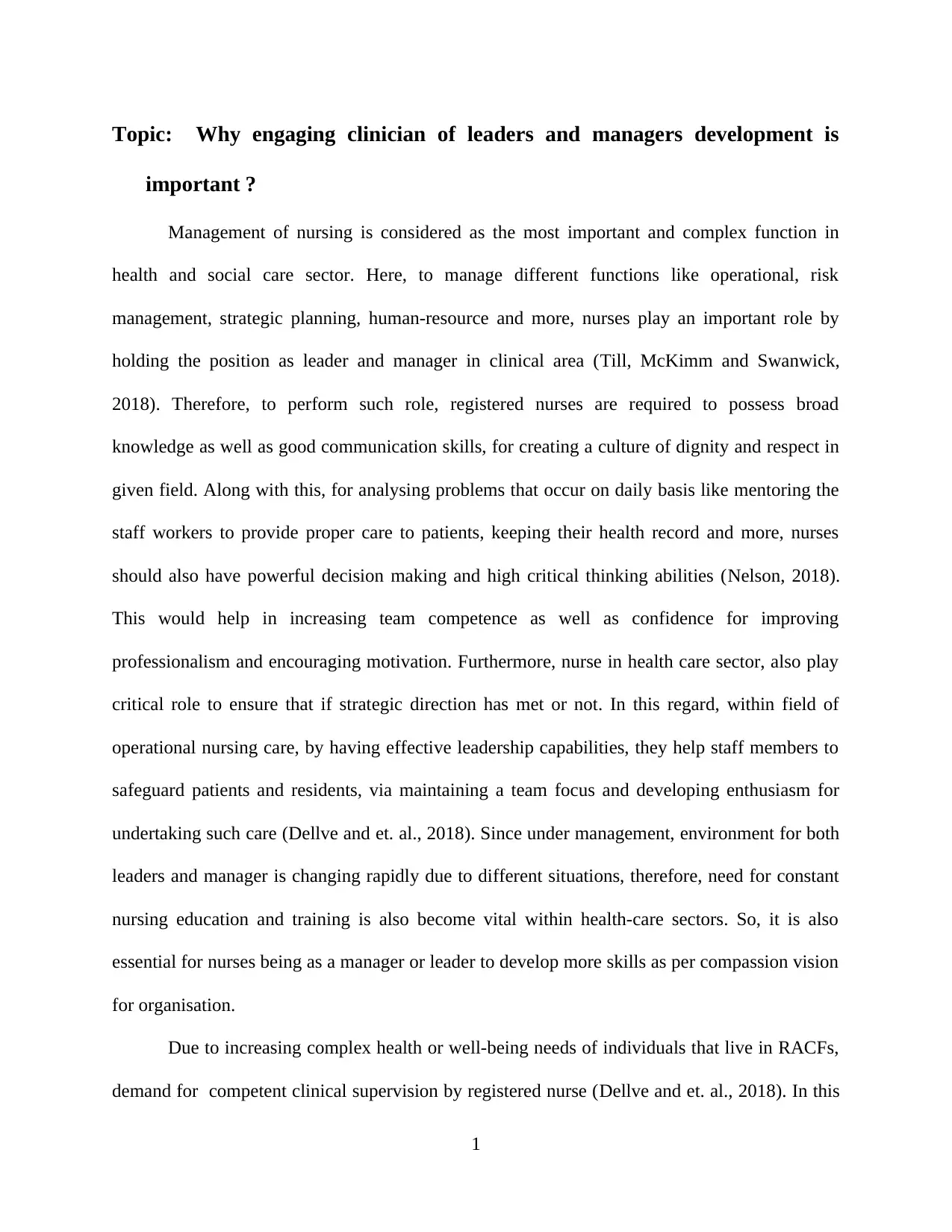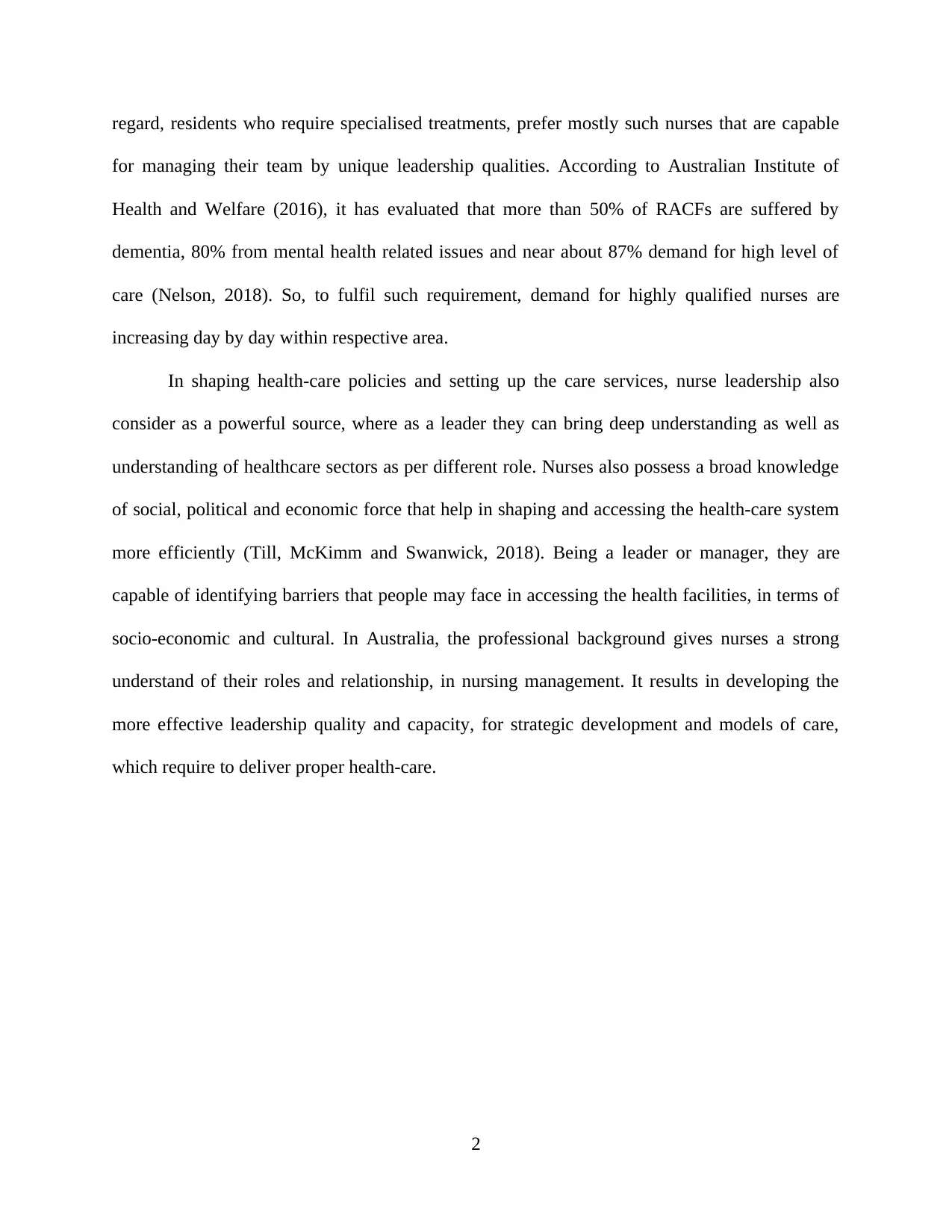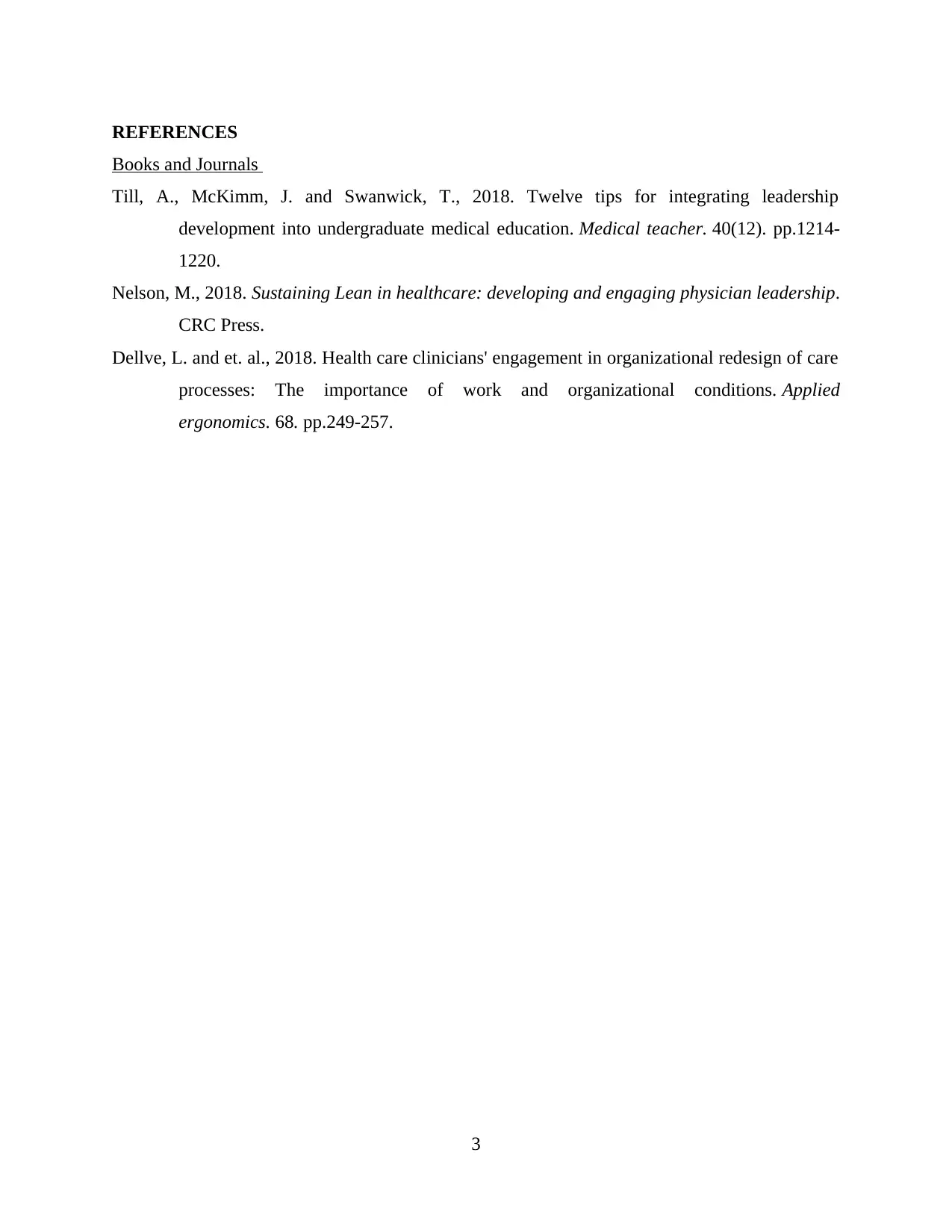The Importance of Engaging Clinician Leaders and Managers Development
VerifiedAdded on 2021/02/19
|5
|691
|99
Essay
AI Summary
This essay examines the critical importance of engaging clinician leaders and managers in the nursing field, particularly within the complex healthcare and social care sectors. It emphasizes the multifaceted roles of registered nurses as leaders and managers, highlighting the need for broad knowledge, strong communication skills, critical thinking, and effective decision-making abilities to ensure quality patient care, team competence, and adherence to strategic directions. The essay underscores the significance of continuous education and training for nurses to adapt to the rapidly changing healthcare environment, especially in residential aged care facilities (RACFs), where specialized treatments and unique leadership qualities are increasingly in demand. It also discusses the influential role of nurse leaders in shaping healthcare policies, identifying barriers to access, and fostering effective leadership qualities for strategic development and models of care. The essay references various sources to support the arguments presented, illustrating the importance of strong leadership for nurses in the healthcare sector.
1 out of 5












![[object Object]](/_next/static/media/star-bottom.7253800d.svg)